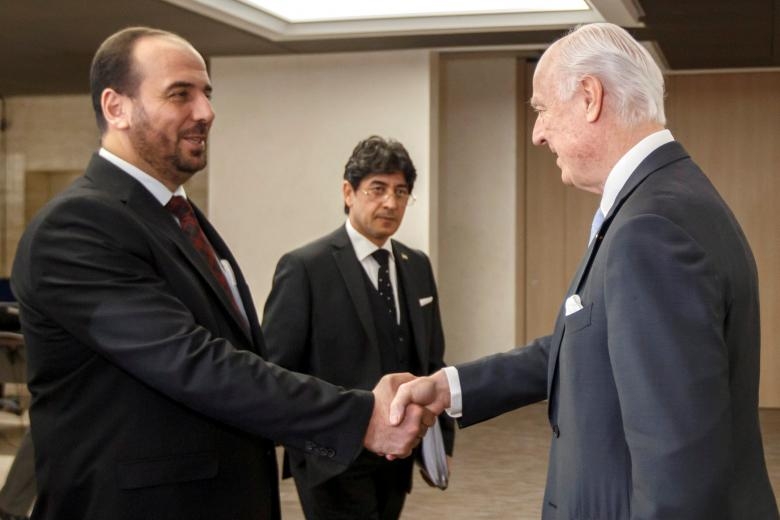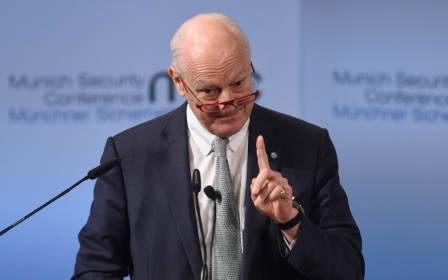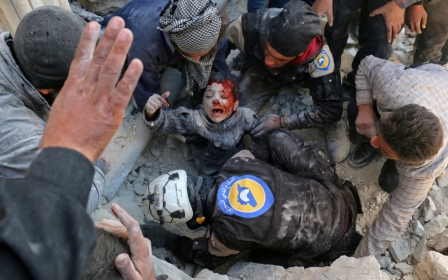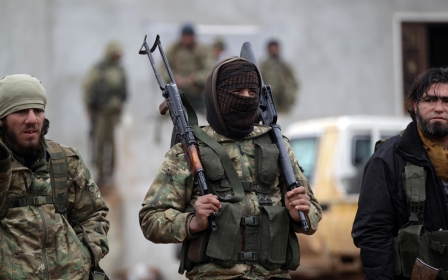Syrian opposition accepts UN principles at end of peace talks

The Syrian opposition has provisionally accepted 12 principles given to delegates by the United Nations at the end of an eight-day round of peace talks, chief negotiator Nasr al-Hariri said.
The general principles on the future of Syria were derived from points set out by UN mediator Staffan de Mistura last year, Hariri told reporters after the final meeting of the round of UN-led talks in Geneva, the first in 10 months.
He said the round had ended without clear results but for the first time issues related to political transition had been discussed in acceptable depth.
"We are closing this round without (a) clear result... but I can say this time was more positive," Hariri told reporters.
His rival, Syrian government negotiator Bashar al-Ja'afari, left the talks without commenting.
Commenting on the talks, UN Syria envoy Staffan de Mistura said : "It was first time we discussed in an acceptable depth the issues of the future of Syria and political transition."
As in previous rounds, Syrian government and opposition negotiators did not meet face-to-face, with de Mistura shuttling between the delegations.
The talks were focused on the agenda, rather than getting into the substance of negotiations, with three main "baskets" or areas of discussion: governance, the constitution and elections.
The Syrian government has tried to get counter-terrorism onto the agenda, while the opposition wants more focus on political transition, specifically the fate of President Bashar al-Assad.
"The international silence must come to an end. The international community must speak out .. to put an end to the ongoing massacres that have been taking place in Syria for six years now," said Hariri.
The Geneva negotiations, the first since last April, are aimed at ending a conflict that began in March 2011 with protests against Assad. Its seventh year begins on 15 March.
Since then more than 310,000 people have been killed and hundreds of thousands have fled the country, fuelling instability in neighbouring countries and creating Europe's biggest migrant crisis since World War II.
The warring Syrian sides have been joined in Geneva by envoys of key parties including notably Russia, a major ally of Damascus.
New MEE newsletter: Jerusalem Dispatch
Sign up to get the latest insights and analysis on Israel-Palestine, alongside Turkey Unpacked and other MEE newsletters
Middle East Eye delivers independent and unrivalled coverage and analysis of the Middle East, North Africa and beyond. To learn more about republishing this content and the associated fees, please fill out this form. More about MEE can be found here.




